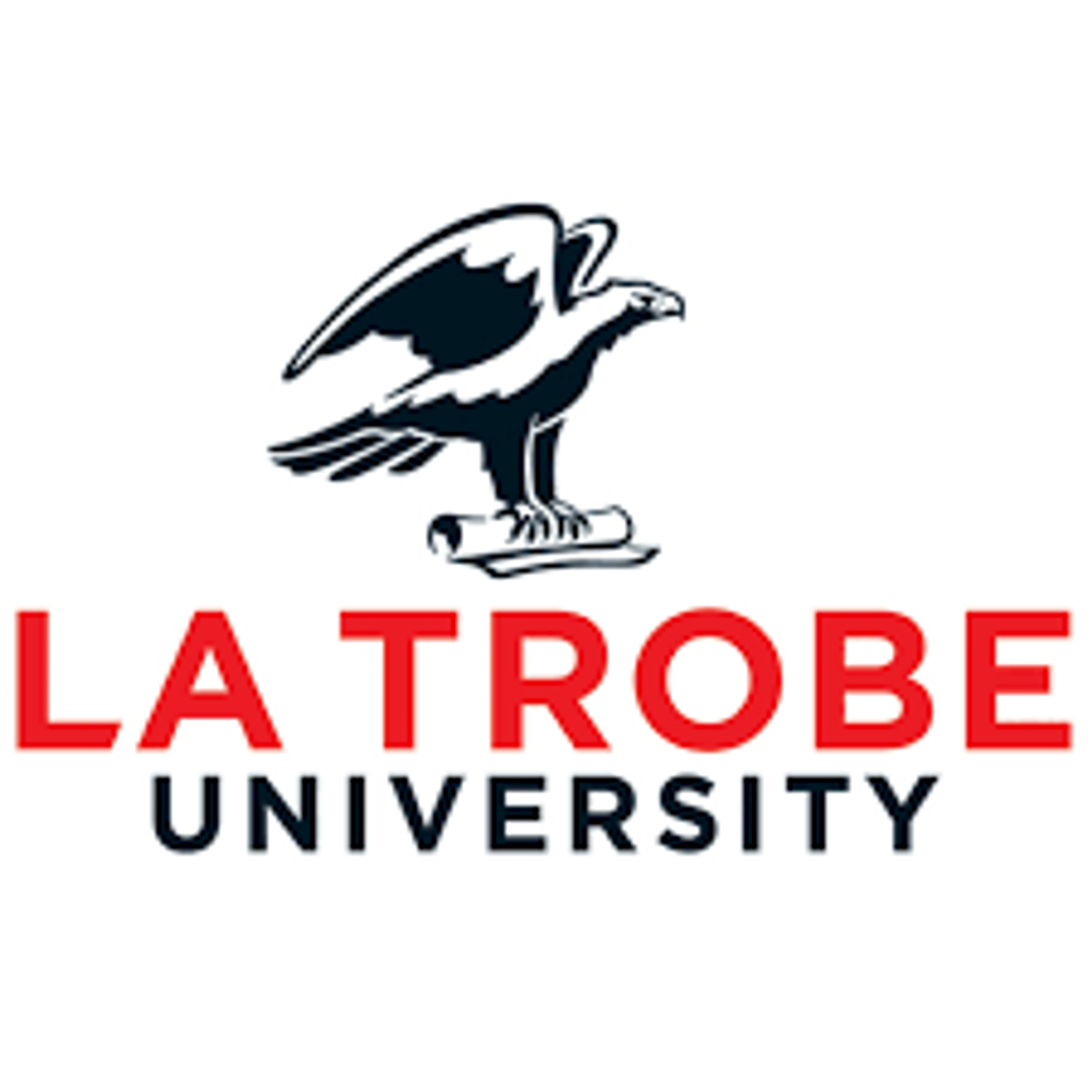Careers and Pathways

Study Abroad & Exchange Programs offered by Victorian UniversitiesStudents who choose to take up an opportunity to do some of their university study overseas get the opportunity to immerse themselves in another culture, study at an overseas university, and really get to engage with students and lecturers at those institutions. An added bonus of many study-abroad programs is that students get to study for one or two semesters at these overseas partner institutions and earn credit towards their degrees.
Find out more about the Study Abroad programs offered by browsing the following links:
| Australian Catholic University | Exchange and Study Abroad |
| Deakin University | Student Exchange |
| Federation University | Study Abroad and Exchange Programs |
| La Trobe University | Student Exchange Opportunities |
| Monash University | Study Abroad |
| RMIT University | Study Abroad |
| Swinburne University | Study Abroad |
| University of Melbourne | Study Abroad |
| Victoria University | Study Overseas |
Scholarships to Study Abroad
Looking to study abroad but worried about the costs? Good news! There are hundreds of scholarships to study abroad, including general scholarships and more specialized funding schemes. Some are offered by government agencies, some by individual universities, and others by external funding organizations and charitable enterprises.
The Top Universities website is an excellent resource to learn more about what scholarships are on offer. Students can search for region-specific scholarships or country-specific scholarships. Students can even search forsubject-specific scholarships.
Students are encouraged to browse Top Universities - Study Abroad Scholarships
Diploma of Professional Learning at La Trobe
Students who do not receive the offer they might want, might like to consider enrolling in the Diploma of Professional Learning which provides an alternative pathway to a range of La Trobe Bachelor's degrees.
The Diploma of Professional Learning is a 12-month course that combines online university preparation subjects and an individual choice of a number of online or on-campus undergraduate subjects. All the Diploma of Professional Learning subjects are supported by on-campus Learning Hubs and a dedicated team who will give you one-on-one advice and guidance.
Students begin working towards a range of La Trobe Bachelor's courses straight away, so they can enter their degree with a foundation to help them succeed in their studies.
After successful completion of just six months of study, students may be eligible to transfer into one of a selected range of La Trobe Bachelor's degrees across arts, business, health sciences and information technology. * *Transition to a Bachelor's degree is subject to meeting minimum requirements
Melbourne pathway courses from the diploma -
- Bachelor of Arts
- Bachelor of Biological Sciences
- Bachelor of Business
- Bachelor of Business (Event Management/Marketing)
- Bachelor of Business (Marketing)
- Bachelor of Business (Sport Management)
- Bachelor of Creative Arts
- Bachelor of Health Sciences
- Bachelor of Information Technology
- Bachelor of International Relations
- Bachelor of Media and Communication
- Bachelor of Science
La Trobe University Build Your Study Skills Webinar
20 October 2020, 4:00 pm - 5:00 pm, Online
It’s time to get serious about your studies but where do you start? La Trobe will share the skills you need to ace your VCE exams. You’ll learn how to make a study timetable that works, take care of your health and avoid procrastination.
Find out more: https://www.latrobe.edu.au/events/all/build-your-study-skills-webinar6
ADF Trade Careers Virtual Information Session
22 October 2020, 4:00 pm - 6:00 pm, Online
A trade role in the Australian Defence Force will see you working with some of the world’s most advanced military technology and equipment.
Learn about trade careers in the ADF and the comprehensive training they provide at the ADF virtual info session.
Find out more: https://www.defencejobs.gov.au/events/events-detail/6mrdtfp
Study Cuisine at Le Cordon Bleu
Le Cordon Bleu Australia has been teaching international standard culinary arts and hospitality management programs to domestic and international students since 1992. With industry trained professional teaching staff and lecturers the Australian campuses offer three unique environments in which to learn the art and mastery of French culinary techniques as well as gastronomy, culture, and undergraduate and postgraduate business programs.
Le Cordon Bleu Australia has a number of campuses: Adelaide, Brisbane, Melbourne, and Sydney, and each campus offers a suite of programs unique to that region and supported by Le Cordon Bleu’s partner associations and institutions. Le Cordon Bleu is committed to supporting the revival and growth of Australia’s hospitality industry, and part of that is ensuring that its courses are accessible to everyone. Students are encouraged to apply for a 50% scholarship.
Course and scholarship information can be downloaded here. Alternatively, browse Le Cordon Bleu Australia to learn more.
An important tip for school leavers for getting a job is to create yourself a LinkedIn profile. LinkedIn is like a professional Facebook account where you can blog, comment on professional discussions, and build a professional portfolio that aligns with your resume. This needs to be developed over a period of years before graduating from university, so start soon, and continue to work on it during university. www.linkedin.com
Top Tips shared by the head of LinkedIn, Cliff Rosenberg
PICK A PROFESSIONAL SHOT
Including a profile picture in your profile is a must. Putting a face to your name makes it 21 times more likely to be viewed, but first impressions last, so make sure your profile picture is professional.
INCLUDE A SUMMARY
Clearly outline your professional story; what your aspirations are and what qualifications you have to offer that others do not. This is your opportunity to demonstrate how your unique qualities make you perfect for your dream role. This is your elevator pitch.
BUZZWORDS ARE BUZZKILL
Are you motivated, creative, passionate? Great. So is everyone else on LinkedIn. Do yourself a favour — delete every single one of these buzzwords from your profile and replace them with keywords.
HIGHLIGHT YOUR EXPERIENCE
Illustrate your unique professional story and achievements by adding pictures, compelling videos, and innovative presentations to your experience section. If you are just graduating, include your school history.
SHOWCASE YOUR SKILLS
Maintaining a relevant list of at least five skills on your profile will help others understand your strengths and match you with the right opportunities. Also add other certifications that highlight important skills.
STAY ACTIVE
Share content that excites you, such as a gripping video, a well-written news story or a particularly impressive presentation through status updates.
5 Tips to help you prepare for a Summer Job
Are you planning on working over the summer holidays this year? If so, the start of Term 4 is the ideal time to prepare yourself and start applying for jobs if you haven’t already got started.
Adverts for ‘Christmas Casuals’ are already popping up and some of the closing dates are as early as mid-October. Businesses like to know they’ve got staff lined up and it gives them a chance to organise rosters, training, uniforms, and paperwork etc., so lots of the closing dates could be earlier than you might expect.
5 top tips that could help you to prepare are:
a. Decide how much time you’ll have available to work during your holidays.
b. Create or update your resume. The Mazenod College Careers Website (Student Secure Area) has many templates for students to use to prepare the perfect resume.
c. Start your search and get applications in for any suitable jobs as soon as possible.
2. Your resume and cover letter definitely do matter
Your Resume (CV) and cover letter are likely to be the first contact you’ll have with the organisation hiring you, and making a great first impression could really count in your favour.
Ensure all your details are up to date, that your skills and experience are all listed, and remember to show a little bit of your personality.
Also it pays to take a little extra time to tailor your applications to each specific job you’re applying for.
3. Find the right opportunities
Start your search early, if you leave it until the end of Term 4 lots of vacancies may already be closed.
Work out what kinds of jobs and hours you’re willing to do, then look for positions that match your requirements.
4. Make sure you’re work ready
Before you can start working and most importantly get paid, you’ll need to make sure that you’ve got a few important things organised.
They include:
- Tax File Number (TFN)
- Bank Account
- Super Account
5. Put in some time and effort
It’s best to assume that every job you apply for will receive tonnes more applications as well, so if you want to land a great job then you’ll need to put in a bit of work that could give your application a boost and stand out.
Approach every application and interview with a positive and professional attitude. If you don’t make an effort to write a personalised cover letter or complete the entire application, if you submit documents after deadlines or turn up to interviews late and unprepared, you won’t be making the best impression on employers and could end up missing out on the job.
Current Vacancies
Below is a list of current employment opportunities available to Mazenod College students. Each of these employers has contacted the College in recent days seeking job applicants for part-time positions and full-time apprenticeships.
Mulgrave McDonald's - Crew Member Position Openings
| With the easing of Covid-19 lockdown restrictions McDonalds Mulgrave are expecting to be opening our store close to full capacity once again, and due to this, we are wishing to hire a small number of crew members to help us achieve this goal. Employment opportunities in both customer experience and food preparation are available. McDonalds Mulgrave is currently looking for Year 9 and 10 students (over the age of 15) who are interested in starting their career with us. We take pride in developing essential workplace skills within our employees and we believe that the experience they gain with us will be beneficial for both their employment at our store, and their future employment opportunities. Application through the McDonald's website (applicants are to list the Mulgrave store as the preferred place of employment).
|
Wooloworths M-City, Clayton
| Woolworths Supermarket (M-City, Clayton) are recruiting and are looking to employ some students from the local community. Interested students should apply on the Woolworths Careers website, wowcareers.com.au and create a profile. This will generate a candidate ID. Once you have your candidate ID, you are encouraged to drop your resume into the store directly to the Store Manager, Mr Matthew Spencer.
|
Bricklaying Apprenticeships – Immediate Start
| Bricklaying apprenticeships are ideal for anyone looking for a career in the building and construction industry. It provides a hands-on learning environment with consistently challenging projects demanding versatility and skills development. Visit the Australian Brick & Blocklaying Training Foundation (ABBTF) website for more information, to register your interest and view the current Jobs Board for Victoria: www.becomeabricklayer.com.au
|
Apprentice Signwriter & Installer
| We are a local business and have had many Mazenod students for work experience over the years. We would like to extend an opportunity for a year 12 student who is finishing this year to apply for our current apprenticeship position (with a view to start after VCE/VCAL finishes). While signwriting is not a career that many may have thought of, it is a great option for someone who excels in woodwork/metalwork classes and enjoys making things and working with tools and their hands. Signwriting covers working with timber, metal, plastics and vinyl wrapping vehicles. Application for this apprenticeship is via Ms Seremetis, Careers Coordinator. Interested students are encouraged to discuss their application and resume prior to submitting to the employer. |
How to become a Veterinary Nurse
What do Vet Nurses do?
Vet Nurses support Veterinarians by providing medical care to any animals that come into the clinic. The job involves undertaking a range of diagnostic tests, medical treatments and even some minor surgical procedures (under veterinary instruction), as well as educating and supporting owners on maintaining the health of their pets.
If you are caring and resilient, love animals but like people just as much, don’t mind getting your hands dirty and are prepared to be flexible, becoming a Vet Nurse could be a rewarding career to consider.
About you:
- Passionate about caring for animals and their welfare but resilient enough to deal with the hard parts of the job
- A multi-tasker who can work efficiently even under pressure
- A natural team player with great initiative
- Great communicator with excellent observational skills
The job:
- Administer medications, assist with surgery and emergency procedures
- Carry out diagnostic tests and minor procedures on animals with direction from a veterinarian
- Stock medical and other supplies, dispense treatments or medications to clients with instructions on how to use them
- Maintain and sterilise equipment, keep medical records up to date
- Provide information and support to pet owners and assist in consultations
- Carry out administrative and other functions such as cleaning that help to keep the clinic running efficiently
Lifestyle Impact: Medium
- Part time opportunities: Medium (51% of Vet Nurses work part time – Source: joboutlook.gov.au)
- Average hours for full-time workers (they average 40 per week)
- Vet Nurses salary (average) $57,000* per year (Source: joboutlook.gov.au). You could earn more if you worked full time, depending on your location, experience, and qualifications.
- Future career growth: Strong (Source: joboutlook.gov.au)
- As a veterinary nurse you’ll have to work outside of 9-5 hours, may have to work long shifts with weekend and late clinics and be flexible enough to attend to emergencies. It’s a career that may also take an emotional toll as often as it is rewarding.
How to become a Vet Nurse in Australia
A Certificate IV in Veterinary Nursing is the basic qualification required for eligibility to work as a Vet Nurse, this usually takes 2 years to complete.
Step 1 – Study English, Mathematics and Biology at high school. Completing Year 12 in these subjects could help you to be more competitive when applying for jobs. You could also incorporate VET Certificate II in Animal Studies within your VCE or VCAL program.
Step 2 – Complete relevant tertiary qualifications e.g.:
Certificate IV in Veterinary Nursing
An Apprenticeship or Traineeship would allow you to learn and gain work experience at the same time.
Step 3 – Once you have completed your studies it’s recommended to register with AVNAT.
Step 4 – Consider specialising or upskilling with other tertiary qualifications and short courses to progress your career. You could go to university and complete a Bachelor of Science and Doctor of Veterinary Medicine at the University of Melbourne, qualify, register and work as a Veterinarian.
Find out more here:
Ms Vivian Seremetis
Careers Coordinator









